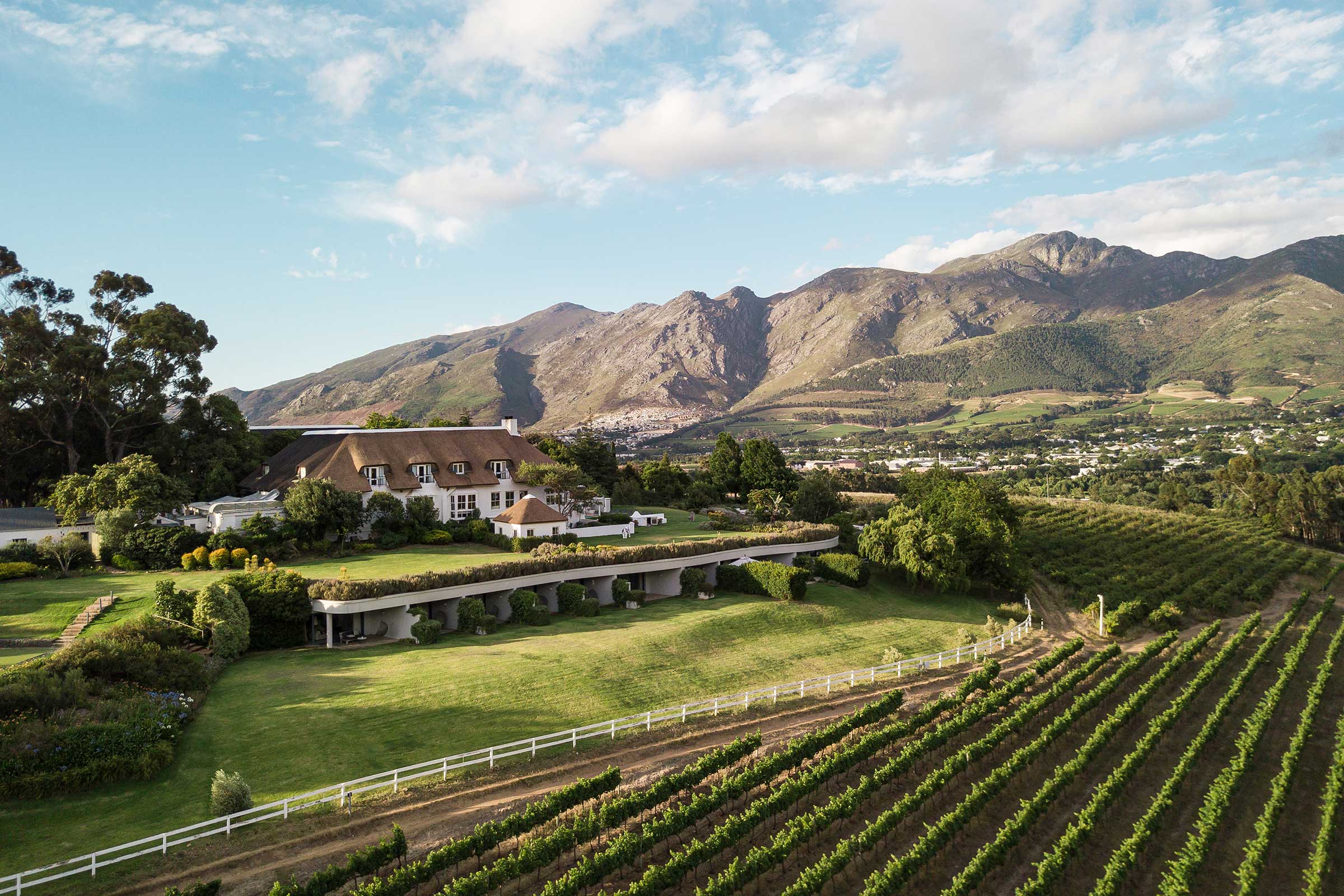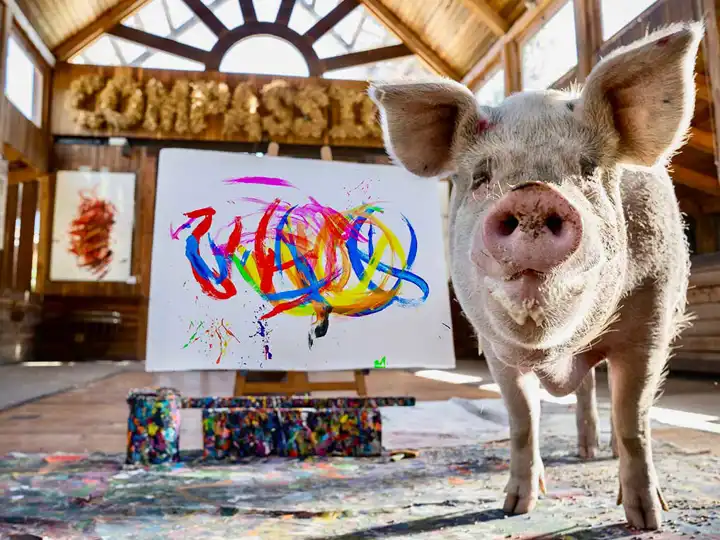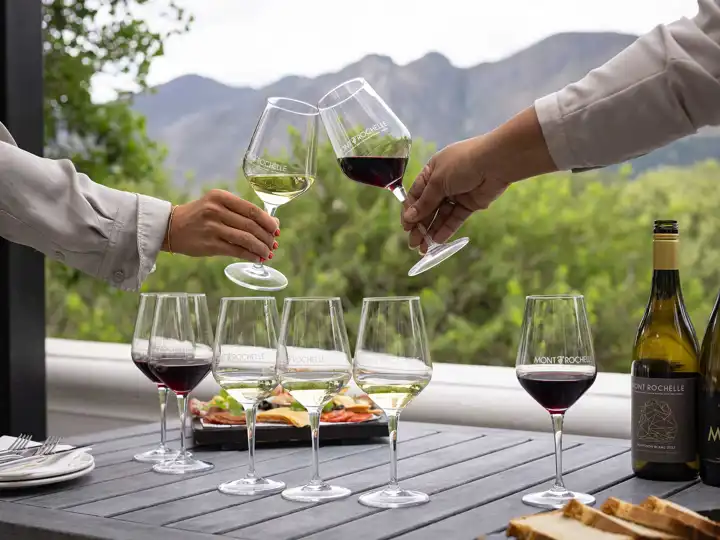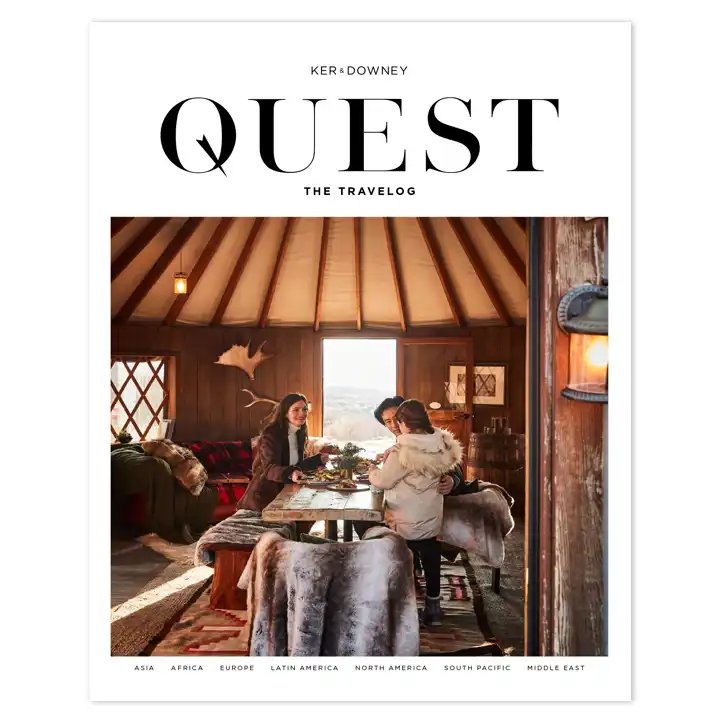A Taste of Franschhoek
As Seen in QUEST Magazine
By Lauren Kramer
Talk to anyone who has visited Cape Town and they’ll get a dreamy look in their eyes when they talk about Franschhoek and their time in the South African winelands. A verdant valley surrounded by the Boland Mountains, Franschhoek is one of the world’s oldest and best-known epicenters for viticulture, thanks to its range of terroir and the rich soil on the flanks of the mountains, where the vineyards flourish.
We joined Escape + Explore for a day-long Franschhoek experience, commuting an easy 45 minutes’ drive from the city. Minutes after leaving the highway we were in grape country, passing acre upon acre of picturesque vineyards, many of them surrounding Cape Dutch farmhouses with thatched roofs, white exteriors, and strikingly beautiful architecture.
A magnet for visitors, the town of Franschhoek's prime offering is wine tasting, but there are also horseback rides through the vineyards, biking trails, and a main road filled with art galleries, boutiques, and sophisticated restaurants. Eager for some exercise, we grabbed a few bikes and pedaled through quiet country roads up a hill to Mont Rochelle, Sir Richard Branson’s 37-acre winery and boutique hotel.

“When Nelson Mandela came to power, one of his first calls was to Branson,” says our guide, Jacqui Smith. “Mandela asked him to invest in the country, and Branson agreed right away.” One of his purchases was this Franschhoek vineyard and its farmhouse, which dates back to 1608 and offers five-star accommodation with sweeping views of the valley. We puffed a bit further up the mountain on the bikes, rewarded by heart pounding views of the mountains and vineyards below.
Franschhoek boasts over 200 wineries, so the hardest decision is choosing which ones to visit. We stopped at Le Lude for a tasting of its rosé wines, sitting in a glamorous, French colonial tasting room as we sipped, savored, and learned about Franschhoek's many microclimates and how they affect the constitution of the wine.
Wine has been a defining feature of Franschhoek since the late 1800s. When France outlawed Protestantism, French Huguenots fled the country. Some arrived by ship in Cape Town, settled in Franschhoek (‘French corner’ in Dutch), and began laying out the vineyards that exist today. You won’t hear a word of French today in Franschhoek, but the French influence lingers and many of the farms have stayed in the same families for generations.
Newer residents of Franschhoek have added their mark to the town too. One of them is Pigcasso, a pig who loves nothing more than to paint, generating artwork that’s made her famous. Her owner, Joanne Lefson, is an animal lover determined to rescue animals from slaughter and to educate visitors about the inhumane conditions endured by animals farmed for their meat. She created Farm Sanctuary SA in Franschhoek in 2016, and Pigcasso, destined to be a pork chop at six months, was one of her first rescues from the slaughterhouse.

Lefson noted that Pigcasso destroyed just about everything—with one exception: some old paintbrushes that were in her pen. Curious to see what the pig would do, she gave it paint and a canvas. Pigcasso picked up the paintbrush in her mouth and began painting. Since pigs are colorblind, Lefson helped by choosing the paint colors, and with her marketing flair and the buzz created by many media outlets, Pigcasso’s work began selling for thousands of dollars.
Today the proceeds from those abstract impressionist artworks sustain the sanctuary, a bright, welcoming farm where visitors can feed the animals, peruse the paintings, enjoy a wine tasting, and even spend a night in barn-style accommodations.
In her senior years now, Pigcasso was in a deep slumber the day we stopped by, but her easel remains at the ready, and she’s still creating her unique artwork.
You can’t visit Franschhoek without stopping at Boschendal, one of its oldest and grandest wineries. We sat beneath the courtyard oak trees for a tasting of chardonnay, pinot noir, and syrah, wines that have helped bring acclaim to Franschhoek and that continue to impress even the most sophisticated wine palates the world over. It’s easy to spend an entire day at Boschendal alone, because apart from the gastronomical delights — gourmet picnics, fine dining meals, wine tastings, and a farm shop, butchery, and deli — the estate also offers farm tours, bike rides, horseback excursions, and guided hikes on its expansive property.

We ended the day with a riverside picnic lunch at Holden Manz wine estate. The picnics in Franschhoek are no ordinary affair — they are gastronomic feasts that come with wine, picnic blankets, cushions, and a selection of carefully curated treats. We ambled through the estate’s vineyards to the water’s edge, laid out our picnic blanket, and spent a glorious hour nibbling delicacies and sipping rosé as turtledoves cooed down at us from the tree branches. It was one of those rare, perfect days, we agreed, the kind that lives long in memory and lifts your spirits at the recollection of spectacular wine grown in a verdant valley that’s steeped in history and replete with passionate artisans and even a painting pig!
Don’t let the name fool you. The Winelands has plenty of opportunities for families and non-drinkers to experience. For touring with younger kids, swap out the mountain bikes Lauren used for e-bikes for a little help getting up those hills. Or go big and opt for a quad bike adventure between vineyards before stopping for a private chocolate tasting. - MJ Eraci, Designer

Quest Magazine
Dedicated to the experiential style of Ker & Downey travel, QUEST Magazine features eye-opening content that focuses on unforgettable experience, unheard-of destinations, and the very best our world has to offer. Each issue is packed with insider information, what's new in the world of travel, and editorial pieces that focus on our global culture, philanthropy, and transformative travel.
Read The Family Issue